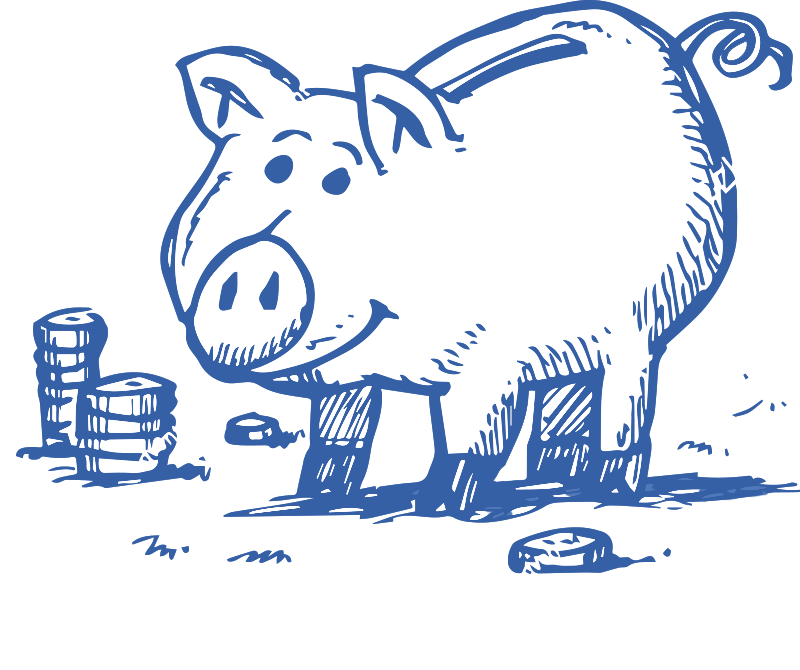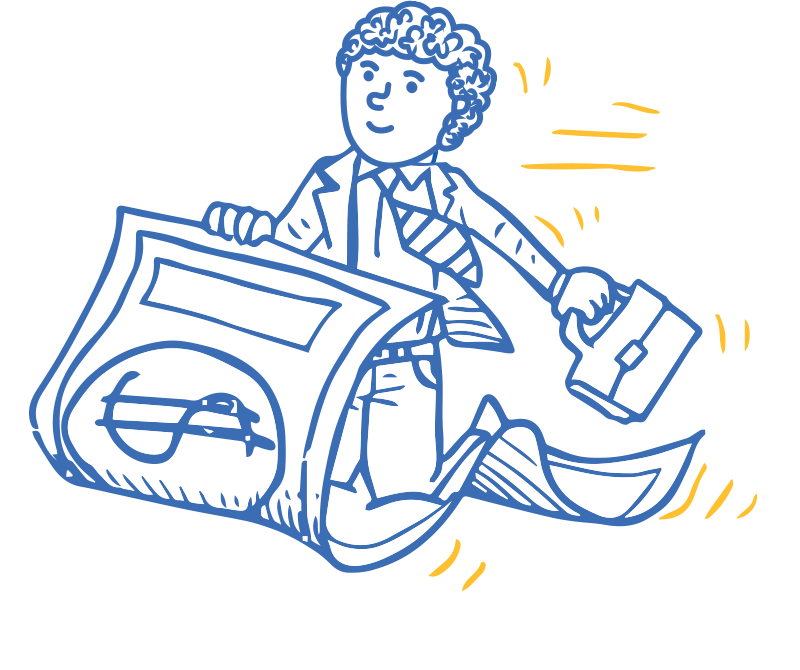Table of Contents
When you start a new site, there seem to be dozens of new tasks to take care of everyday.
It’s tough, and it can burn you out.
And you feel it especially when it comes to link building. Not only does it require a lot of attention, but it can also be hard to navigate the world of backlinks sometimes.
Should you pay for links?
Where do you find link building opportunities?
How do you reach out to other sites?
Around one year ago, we started a brand new authority site in the pets niche. Today, we’ll tell you all about the links we got, how we got them, and what you can expect when link building for a brand new site.
Our Site In Numbers
We started our site in the pets niche about one year ago, and we had our first real link building campaign around October 2020. Since then, we’ve gathered just over 150 links, and grew the site’s DR from 0 to over 25.

To achieve these numbers, we mainly did guest posting, the shotgun skyscraper technique, and HARO (Help A Reporter Out). In these past months, we’ve even managed to land backlinks on domains with a DR of over 70, so it’s safe to say we’re happy with how our campaign progressed so far.
But how can you pull off the same thing?
Let’s start from the beginning.
Campaign Overview Is Key
Before your first ever outreach email is sent, you should plan your link building campaign. You can set-up a spreadsheet to keep track of your efforts. Every single detail of your outreach campaign is important, so leave enough room to tackle everything, including:
- The name and domain of sites you reach out to
- When your first interaction with each lead was
- The number of follow-ups you send to each prospect
- The contact details for your connection at the website
- The offers you made in exchange of a link
This is extremely important for anyone in charge of your link building campaign, since it provides an overview of all opportunities.

It also helps bring clarity to the whole process, making it easy to compare opportunities.
When you have a spreadsheet detailing your interactions with all possible link building partners, it’s easy to observe when someone is making a “less than ideal offer” or when the time spent with a potential partner is not worth it.
For example, most of our exchange or guest post type backlinks don’t need more than one follow-up to shake hands on a deal. If you’re at your 10th email, and you still haven’t settled on anything concrete, it might be time to either make a different offer, or just drop the lead altogether.
Another big benefit of keeping track of all your link building communication is clarity for paid links – how much they should cost, how much bang you can get from your buck, and generally what you can expect from paid partnerships.

Let’s talk more about that.
Paying For Links: Should You Do It?
If you would’ve asked us 2 years ago if you should pay for links, we would’ve said no.
The situation’s a bit different now. Don’t get us wrong, paid links are still a risk, and they should definitely not be your only source of backlinks. It doesn’t make business sense, since you can obtain links without paying for them, and paid links can be risky for your authority.
If you’re bootstrapping an authority website, you can grind guest posts and link exchanges to slowly grow your site. That’s how we grew most of our platforms, and it’s definitely a technique that still works. For our pets site, we obtained a large chunk of our links for free. If you have a site with minimal budget, it really won’t take much to move the needle for low competition keywords.
But in this day and age, ignoring paid links is not always possible. They can be a good way to obtain backlinks, at least in specific scenarios.
First, there are niches where you just can’t get around paying for links, at least to get started. For example, the travel niche is particularly notorious for having a cut throat, money oriented link building scene – don’t take my word for it though, that’s what our own community members have to say!

Second, if you want to scale and accelerate your growth, they’re a good way to increase your authority fast.
All of this doesn’t mean you should just throw money at the problem. You have to do it the smart way.
Finally, you need to be ready to accept the risks involved. Google doesn’t like paid links. They’ve made that clear. Can/will they do anything about it? While it’s unlikely based on current trends, we really don’t know for certain. So be ready to accept that gamble.
How To Pay For Links The Right Way
The most important thing you can do if you pay for links is to negotiate the offers you get.
You should never accept the first offer made by a site. That’s a rule of thumb for negotiations in general. Both parties should come up with an offer they’re willing to adapt. If you’re willing to pay $50 for a link, you should offer $25, and work your way up from there. Similarly, if a site offers to host a paid link for $100, they’ll probably accept $50-$75.
So always low ball, and don’t be afraid to cut down on the initial offer aggressively. The worst thing they can say is no, at which point you can renegotiate, or just move on to a different opportunity.

I’ll let you in on a secret though. Before last year, I had never haggled anything in my life. While to some it’s second nature, to me, it was a whole new foreign concept.
So where did I start?
Chris Voss is an amazing person to follow when it comes to negotiating. His book Never Split The Difference is a phenomenal resource to learn negotiation. Much of his concepts and ideas carry over perfectly into the realm of link building and I find myself using his tactics on a daily basis.
We’re not experts in negotiation, so we’ll let the people that are teach you about it. However, we want to emphasize that negotiating properly is the single biggest cost saver for a new site doing link building. You should definitely get clued up on it and learn how to strike good deals before starting your first campaign.
Link Quality Control
Before paying for a link – even before negotiating with someone – you should assess the quality of a site that you’d want to partner with. Assess its general link profile: what do their inbound and outbound links look like?
If they have inbound links to anything suspicious, especially 2nd tier links to PBNs (Private Blog Networks), they probably won’t improve your DR. It’s most likely a scammy site doing black hat to boost their DR and inflate link costs.
There’s usually a pretty easy way to identify this: does their Traffic match their Domain Authority?

We know these tools aren’t 100% accurate when it comes to traffic estimations, but this is plenty enough to highlight something fishy.
In this particular example, they were asking for $100 for a link! Avoid at all costs!
Check their outbound links as well. Most sites will link to some taboo platforms, like CBD or gambling, but if every single link is to one of these subjects, that’s a red flag.
For this, you can use your preferred tool but we like to use Ahrefs Linked Domains Report

You’ll quickly be able to identify sites that have no shame in linking out to multiple spammy CBD, Gambling, Porn etc. sites.
Don’t get me wrong, one or two CBD sites isn’t a problem. When their entire outgoing link profile comprises of links like this though? That’s when alarm bells ring.
Based on your research, don’t be afraid to reject offers from crappy sites. It’s better to take longer to obtain backlinks, but in the process keep the quality of your backlinks high, and reduce risks.
You can also use this research to figure out a fair offer, and even as ammunition for negotiation.
Finally, just employ a sense check. How does the website feel. It’s a little harder to quantify this, but if something feels off or the site just looks like a farm for paid links, go with your gut.

If the home page looks something like this, I don’t care how good their stats are!
New sites, and established ones that are looking to maintain a healthy backlink profile, should track these metrics with care.
How To Obtain Free Backlinks
We recommend that you try to obtain free backlinks for every new site, regardless of your niche’s particularities. As we mentioned before, it just makes business sense to look for free opportunities as well.
Especially when there are a lot of streamlined and “standardized” processes, so to speak, for obtaining free backlinks.
Let’s talk about them.
Guest Posting
With guest posting, you’ll write an article much like this one for a blog in your market, that’ll feature a backlink back to one of your posts. If you’re on a budget, guest posting is the best way to grind out some free links.
And there are two ways you can go about it.
First, you can snipe for guest posting opportunities. Google your niche topic + “guest post”, and you will find sites that have accepted guest posts in the past. In a lot of cases, this can even lead you to sites that have a standardized process for accepting guest posts.
A lot of people might tell you that this method sucks because everyone’s doing it and the sites tend to be lower quality, and there is some truth to that. But at Authority Hacker, we base our advice on data, not theory.
In fact, the first 6 links we obtained on the site were through this method and were all highly relevant and of good quality – enough to make us think that it was well worthwhile.
However, it’s important to remember that a lot of people will ask you for money throughout this process. It’s a numbers game, so don’t be disheartened. The more emails you send, the higher the chances of finding a free backlink opportunity.
And these opportunities certainly exist. In fact, this was our very first link:

And it turned out to be 2 links in one!
But seeing as this is a numbers game, you might want to go for a different approach. You can also employ the Shotgun Skyscraper Technique, which lets you reach out to dozens of site owners at a time.
Here’s how you can go about it:
- Load one of your competitors in Ahrefs.
- Check their backlinks.
- Import their backlinks into .
- Manually check all the sites for relevancy, and remove any suspicious ones.
- Find the email address of the site owners.
- Reach out with a templated message.
After this process, make sure you follow-up at least once with all leads. When you get a response, they’ll either want to proceed with a free guest post, or ask for money.
If you do decide you want to pay for links, it’s almost always a better deal to just ask straight up for a link insertion instead. There’s little benefit to paying for the link AND for the content creation.
Finally, if you’re one of those people that believe link building is dead after Matt Cutts ominous message from 2014, again, it’s important to look at the data rather than theory of it all. Just because Google went on the record about this, it doesn’t make it fact.
In fact, we have pretty clear evidence that Guest Posting is still a viable method. A friend of ours, Vlad Falin from Cost of Income has been relentlessly guest post link building throughout 2020 and beyond.
His results paint a stark contrast to Matt Cutt’s message, acquiring links from the likes of Yahoo and CXL that just wouldn’t have been possible otherwise.
His DR and traffic growth really do speak for themselves, and just wouldn’t be possible with other types of link building methods.

But if that’s not enough, you can also try to negotiate a link exchange.
Link Exchanges
If you’re just getting started with a site, you will need another site to negotiate a link exchange with. If you have that possibility, don’t shy away from high-quality link exchanges. Just remember to always ensure that the quality of content on these sites is good. If all boxes are ticked, exchanges are a good part of a healthy link profile.
I can’t stress enough though that this is something you should pay due diligence to. If it’s clear they’re trying to push spammy or crap quality content, outright reject it.
Ask yourself “would I put this content on my own blog?”.
If you don’t have another site to leverage in negotiations, you can always think outside the box.
One of our writers who happens to work for an agency had a novel idea while working for a phone repair franchise. He actually went ahead and offered up a free phone repair in exchange for a high DR link!
If you offer any service or product, you can probably negotiate that into the backlink negotiation. Think outside of the box – there’s really no limit to what you can achieve with a little forward thinking!
Help a Reporter Out
Help a Reporter Out (HARO) is a platform where authority site owners provide information, and sometimes even guest posts for reporters in exchange of a backlink.
We’ll be honest, we had a tough time on HARO with our latest site. The topic is extremely niche for HARO, and this might be the case for your new site as well. However, that doesn’t apply to all new sites, so HARO is still a great opportunity to keep in mind when starting out.
For Authority Hacker, we do extremely well on HARO. It has helped us obtain over 120 high quality, high DR links. And they were all free.
In fact, check out this link we got from American Express. Completely free of charge.

The best way to know if HARO can work for your site is to just sign-up and start reaching out to reporters, based on what they need.
While numerous guides exist, and I could go into more detail on what to say and how to say it, the truth is, the best thing to do is just dive in head first.
If this goes on for a while without you finding any opportunity, it’s safe to say that HARO might not be for your site either. Just give it a shot before you dismiss it altogether.
In Conclusion
Our recent pets site is a good case study in link building for a brand new site. We started with no backlinks, no authority, and managed to get over 150 links, and a DR of over 20.
But that site is not special. You can do it too, as long as you:
- Keep track of every detail in your campaign
- Have a healthy balance of paid and free links
- Negotiate backlink opportunities
- Control the quality of backlinks you might get
- Use the shotgun skyscraper technique
- Sign-up for HARO
Getting backlinks for a brand new site is a grind, especially if you’re not willing to pay for them. But it’s not in vain. If you grind like we showed you in this article, you can reap the results, even sooner than you might expect.

 Check out the BuzzStream Podcast
Check out the BuzzStream Podcast







